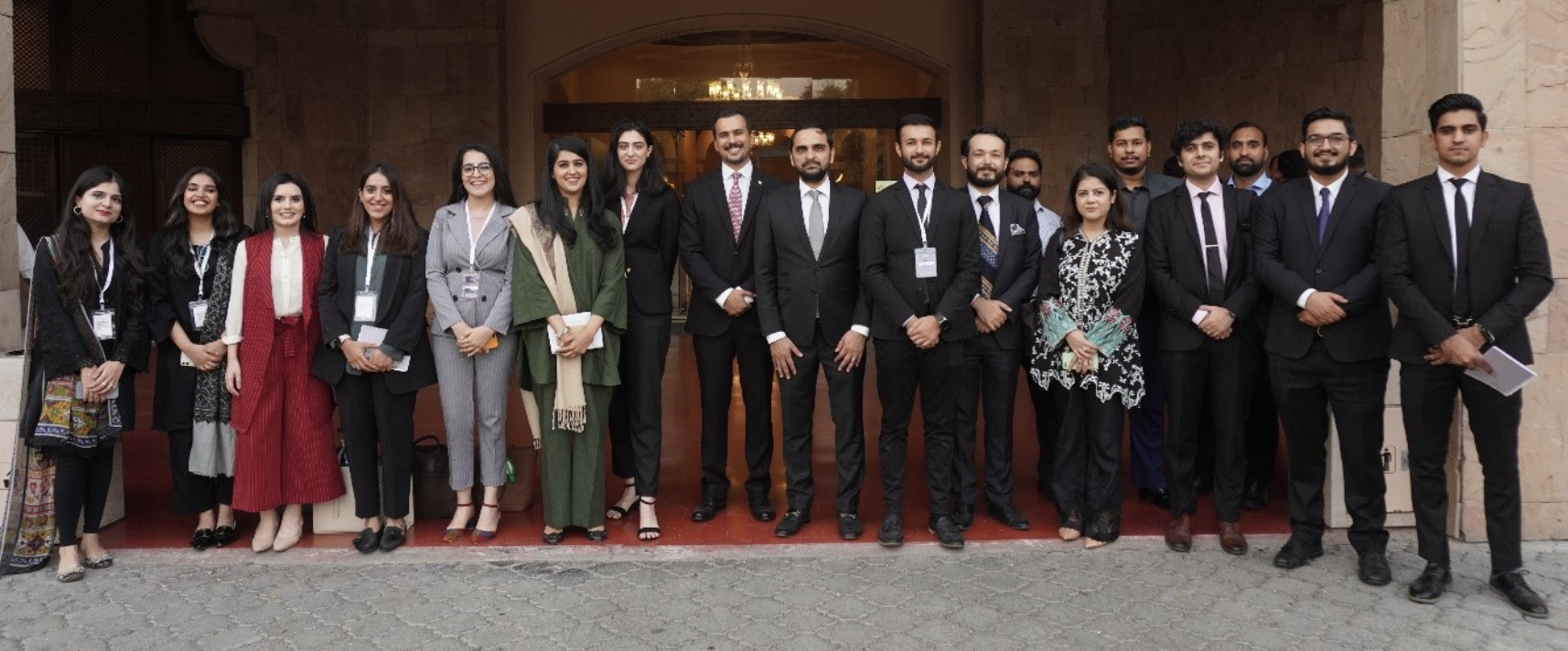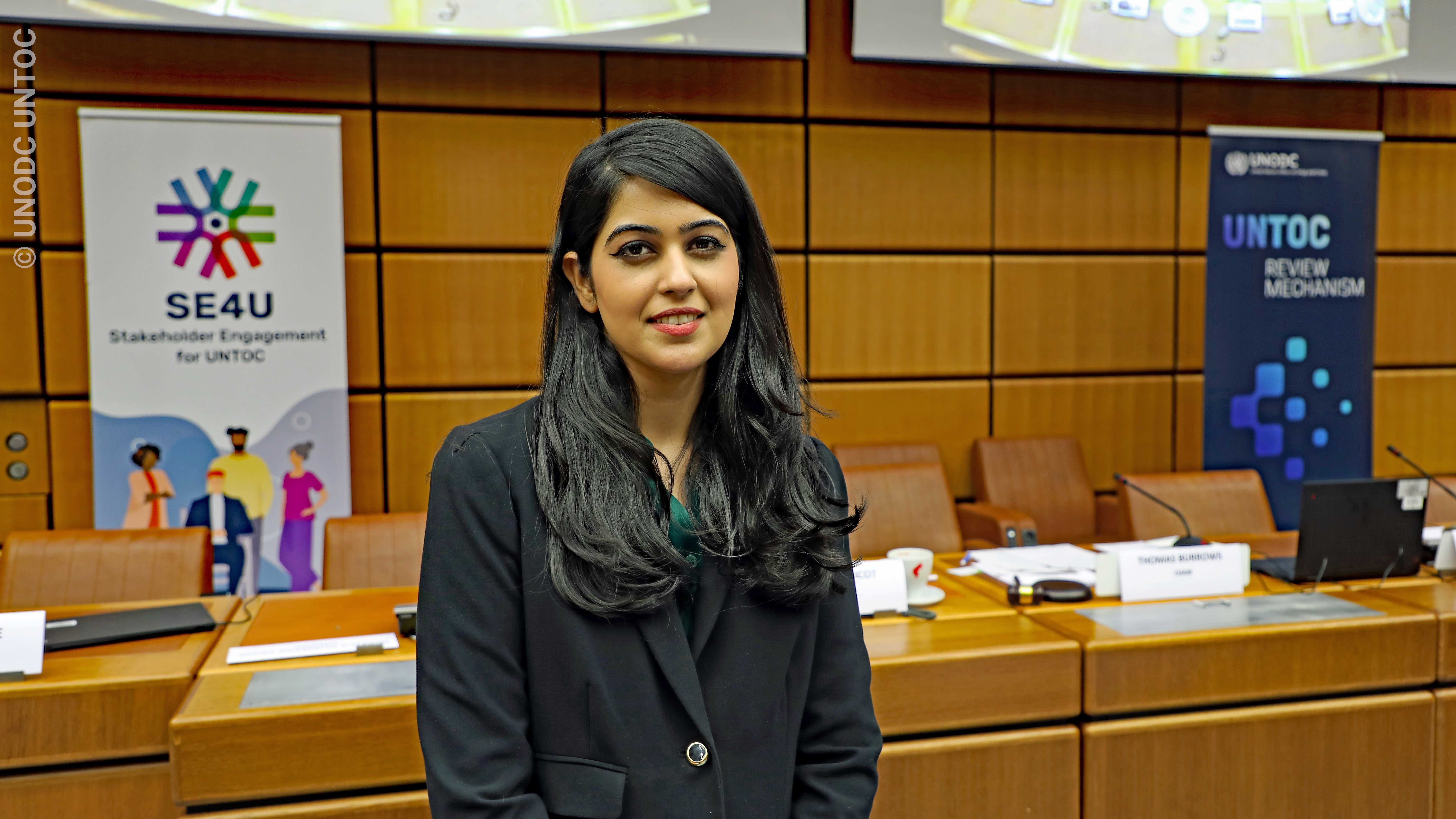
For the last decades, organized crime has been a challenge in Pakistan, with various forms such as drug trafficking and human trafficking posing significant threats. The government of Pakistan has taken several measures to tackle organized crime, including through law enforcement operations, legislative actions, and international cooperation. At the same time, local non-governmental stakeholders are actively involved in raising awareness, advocating for policy changes, and contributing to community-based initiatives. Most of them often work on issues related to human rights, justice, and social development, which can intersect with the challenges posed by organized crime.
Pakistan's largest legal think tank, the Research Society of International Law conducts research on the intersection between international law and the Pakistani legal system. Based in Islamabad, RSIL is a private sector research and policy institution whose contribution involves extensive publication of materials through dedicated centers and various channels, including podcasts, articles, blogs, and in-depth research papers to create awareness about international law and tackle domestic legal challenges through the application of global legal frameworks.

Noor Fatima, Senior Research Associate at the RSIL, states that research is fundamental to their work. They have collaborated numerous times with the UNODC office in Pakistan, with a significant emphasis on counterterrorism. Through these collaborations, the RSIL is actively engaged in capacity-building for public stakeholders to raise their awareness of international legal developments. Through conducting training sessions, workshops, and developing targeted knowledge materials to enhance their understanding of international legal dynamics, the RSIL is bridging these gaps and fostering awareness in the international legal sphere.
Noor Fatima and her team are at the early stages of involvement with the SE4U (Stakeholder engagement for UNTOC) project implemented by the UNODC Civil Society Unit (CSU). Noor affirms that the course platform provided for civil society serves as an excellent starting point for members to study the review processes, understand the UNTOC, its protocols, and the technical perspectives unfamiliar with the UNTOC convention, offering detailed information available to civil society members at their own pace. “The collaboration between UNODC and the government to empower civil society in areas where governments might prefer confidentiality is a significant highlight. UNODC's role as a facilitator and partner lends legitimacy to the process, making it easier for civil society organizations to engage with the public sector. This partnership provides a straightforward gateway for civil society actors, addressing challenges faced when operating independently”.
In September 2023, Noor attended the Constructive Dialogue on international cooperation in Vienna. This experience highlighted the tangible impact civil society can have on international law processes, especially concerning the untapped UNTOC Convention. Noor acknowledges, "Participating in such events is not only refreshing but also reinforces our commitment to these initiatives." She further adds, "Personally, it was eye-opening to witness international law in action. As a civil society member, despite being geographically distant and not representing any Member State or UNODC secretariat, I was provided a platform to contribute insights and make an impact. The unprecedented attendance of 49 Member States in the dialogues on smuggling of migrants and trafficking in persons demonstrated a significant willingness to incorporate civil society perspectives into their deliberations."
This experience left a lasting impression, prompting the RSIL to embrace a more proactive approach towards Constructive Dialogues. The organization is considering increased participation in future dialogues to further influence these seemingly distant legal processes. This newfound ability to have a genuine impact on such complex legal discussions is the most significant takeaway for Noor Fatima.
The challenges in Pakistan are indeed numerous. Without political will and coordinated action, actors can continue to operate in isolation, which could potentially impede efforts to fights transnational organized crime.
However, the positive aspect in Pakistan's context is the initiation of the Voluntary Pilot Initiative (VPI), providing civil society actors with a platform to influence government processes. While the VPI addresses one challenge, sustaining momentum remains a significant task. The extensive review process, covering different clusters, requires that civil society actors continuously enhance their expertise and consistently communicate with the public sector. Keeping engagement alive becomes crucial due to the lengthy review process, potential shifts in government priorities, and the dynamic nature of challenges within this framework. Staying committed and consistently involved is key, offering a solution to this persistent organized crime challenge.
Ms. Fatima mentions that what truly instilled an understanding was targeting the justice sector — investigators, prosecutors, judges. This is where societal change happens. While laws may be written in the legal books, without correct application and implementation, positive societal change remains elusive. “Although our organization is relatively new to the WhatsOn platform and the SE4U project, our goal is to collaborate more with like-minded partners. We aim to share our research, believing that what worked in Pakistan may benefit other countries. Many of these issues are easily transferable to other jurisdictions, so sharing best practices, lessons learned, and our technical research, readily available on our website, can have a positive impact if we reach a broader audience”, highlights Noor Fatima.
Visit the RSIL WhatsOn profile to connect, network and further information or visit their website.
Visit the UNODC-Civil Society Unit’s website for training opportunities.